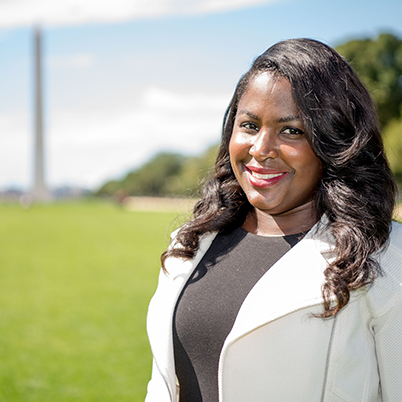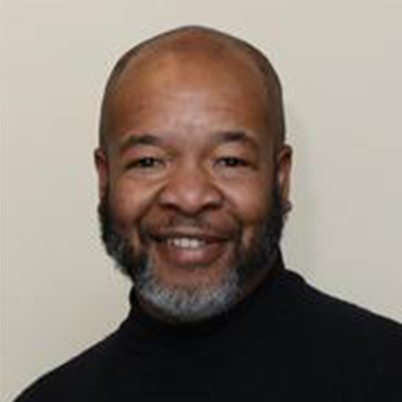
Learnings in Leadership: Allison Neswood, Denver, Colorado
02.27.2020
Allison Neswood, Esq., is a Health Care Attorney with the Colorado Center on Law and Policy. The Colorado Center is a major social justice organization in the state, and Neswood is a health care lead. In her role, she has worked at the state legislature to improve due process protections for Medicaid recipients, to secure state funding for a statewide program that would help clients navigate the application process for federal Social Security disability benefits, to defend against the imposition of costly work requirements in Colorado’s Medicaid program, and to increase nonprofit hospital investments in community health. Her increasing focus on health equity and changes to health care delivery led her to become a fellow of the inaugural class for the Families USA-run Health Equity Academy in System Transformation, and currently sits on the Colorado Healthcare Affordability and Sustainability Enterprise Board, the Board of Denver Indian Health and Family Services, and the Board of Center for Health Progress.
Our Partnerships Coordinator, Raven Gomez, spoke with Allison about her work, health equity in health system transformation, and her insights for fellow advocates:
Families USA: Tell us more about the work you do.

Allison: I work at an advocacy organization that strives to end poverty in Colorado. We advance new policies and enforce existing laws to ensure that people disadvantaged by an unjust economy have access to safe and stable housing, adequate nutrition, quality healthcare, and an income that covers their needs and provides the ability to save.
My role is focused on access to quality health care. As an attorney, a lot of my work is on the enforcement side, which involves engaging in rule-making and other administrative processes to ensure that health care programs – especially Medicaid – meet the needs and legal rights of the eligible population in Colorado. I also do a lot of work at the state legislature focused on improving how health care and other health-supporting systems work for people in our state that are struggling to make ends meet.
At the center of our efforts is a focus on equity. We understand that communities of color and other groups face greater barriers to success due to past oppression, ongoing discrimination, and an economy that compounds those realities by advantaging those who have moreover those who have less. It is so critical that inequities be a part of the policymaking conversation, otherwise, we will build them into new systems and, often, reinforce them.
Families USA: What problems are you trying to solve in your work to hold Medicaid managed care plans accountable?
Allison: First, I want to say a few words about the importance of Medicaid. In our system, people live without access to basic necessities, including health care. That reality – what we refer to as poverty – is not an individual failure. Individuals don’t create poverty. Structural factors like racism, colonialism, and an unfair economic system create poverty. By providing health care services for people across the country that don’t have the resources to pay for what they need, Medicaid not only promotes health and wellbeing, it represents a critical tool for fighting the systemic injustices that deprive people of what they need.
Given its importance in addressing the needs of people who are harmed by systemic inequities, it is critical that Medicaid operates equitably. It must address – or at least be responsive to – the specific health needs created by inequities. This means that we measure Medicaid systems with disaggregated data and that Medicaid program design and change is informed by the people that Medicaid is supposed to service.
The federal Medicaid managed care regulations require managed care entities to do things like collect and report on data about health disparities, develop plans to address those disparities, and set up systems to meaningfully engage Medicaid members in program improvement activities. My organization is involved in advocating for provisions in our Medicaid managed care contracts that will better enforce those provisions and best practices for community engagement. We are hoping to partner with our Medicaid agency so that we can supplement required reporting with qualitative research that elicits and elevates feedback from our Medicaid population.
Families USA: What brought you to this work?
Allison: My experience as an indigenous woman. I’m Navajo and when a Navajo person introduces herself, she says her clans; first, her mother’s clan, then her father’s clan, then her maternal grandfather’s clan, then her paternal grandfather’s clan. I view this tradition as a way of situating oneself in the story of one’s family; so that everywhere we go, we, as Navajo people, can say who we’re related to, where we come from, and whose shoulder’s we are standing on as we make our way in the world.
I still feel heartbroken to say that I never introduced myself in Navajo until I was giving my grandmother’s eulogy a few years ago. When I was a child, I asked my grandma to teach me to speak Navajo and she told me – “no, Navajo won’t help you.” When my grandmother was a child, she was taken for a time to a boarding school as part of the federal government’s effort to assimilate indigenous children. At these boarding schools, indigenous children were separated from their communities and beaten for speaking their language or practicing their cultures. I watched my grandmother carry that trauma throughout her life and pass it to my mother’s generation, and I felt it permeate my life as well.
I could go on and talk about the lack of resources on our reservation due to federal policies around land ownership and about the chronic underinvestment in the federal government’s obligation to provide health care to our people in exchange for our lands, but what I’ve taken from all of this, aside from a profound sadness, is the knowledge that we as a nation have made choices, policy choices, that have continued to impact the health and wellbeing of communities like mine for generations. My work is dedicated to changing that.
Families USA: What are you most excited about right now in your work?
Allison: I’m excited that there is a lot of opportunity to drive health care reforms and to assert a health equity focus and narrative in Colorado right now. Last legislative session, the state legislature passed bills to move us toward the creation of a public insurance plan, to increase primary care spending, to increase hospital community benefit spending, to improve mental health parity, to improve behavioral health services for children, and to increase access to health professionals in schools. This legislative session, conversations on the public insurance option are continuing and we are looking at improving access to health insurance by reducing costs, expanding eligibility for subsidized coverage, and getting better information about coverage options to the remaining uninsured in our state. Our Medicaid agency is also working on several initiatives aimed at improving health outcomes for the Medicaid population and improving the value of hospital care. There is definitely an appetite at all levels of government in Colorado to identify and develop health care solutions and it feels like a privilege – as well as a great responsibility – to be able to push for a focus on equity in these settings.
Families USA: What challenges have you faced doing this work and being in this field?
Allison: My work requires me to step out of my comfort zone all the time. Reaching out and having conversations with legislators—especially when they don’t see the world the way that I do—is sometimes scary for me. I also go outside my comfort zone when I give presentations to other advocates and community groups on substantive policy issues. Even though it can be intimidating, I also feel like it’s one of the most rewarding parts of my job to help build the capacity of communities to be powerful advocates in their own right.
Another challenge in this work is the cultural assumption that poverty is a moral failing instead of a systems issue. You have to get past that with people, because of the messages that are very prevalent in American culture about individuality and meritocracy. People often assume that people are poor because they make bad choices or have bad attitudes or cultures, and that anyone can climb the economic ladder if they just tried harder. These assumptions are rooted in bias and addressing them in a way that doesn’t feel like an attack is a challenge.
In addition, developing and implementing policy solutions to complex social problems is just hard. There aren’t easy solutions and people disagree on the right course. Navigating that makes the work challenging.
Families USA: What have you learned from these challenges?
Allison: One lesson I’ve learned is that it’s critical to talk about the context – the root causes – of the social problems we are seeking to solve. Social barriers hold people back and those barriers can be invisible to people that don’t experience them. Allowing those barriers to remain invisible can compound harm by reinforcing biased narratives. It’s critical to understand the barriers communities are facing and to publicly speak the truth about those barriers and how they interact with and limit the impact of policy.
Another important lesson these challenges have reinforced is the importance of doing systems change work in partnership with communities that experience inequities. The challenges inherent in social change work necessitate partnering with people who can bring the knowledge and power of lived experience to the conversation.
Families USA: What does health system transformation (HST) from an equity lens look like to you?
Allison: Health system transformation is about improving the value of care – getting better health outcomes out of the care that’s delivered by our system. HST with a health equity lens looks like not being satisfied with improvements in health until we know that communities that have been harmed by health inequities are benefitting from the change. We can’t reach that goal until we get serious and comprehensive about collecting and studying health outcomes data that is disaggregated based on race, ethnicity, LGBTQ+ identities, disability status, and other factors. And we can’t reach that goal until we get serious and comprehensive about hearing from communities that experience health disparities. People that are burdened by poverty and discrimination know what needs to change. Decision-makers in my field are not going to make good, equitable policy until they create, implement, and maintain processes that support community participation in the development of solutions.
We have the opportunity and the obligation to learn from our communities and to supplement the power they already have to transform our systems and create better futures for all of us. When I think about this, I think about the powerful communities that I’ve already learned so much from – I think about black doulas at the forefront advancing health for black moms and babies, I think about the indigenous youth and elders that are at the forefront of protecting our land and water, I think about Dreamers that are at the forefront of making our country more inclusive, and I think about disability advocates that are at the forefront of ensuring all people are free to move about our public spaces. Health equity in HST means learning from leaders like these; it means doing the work to understand their experiences and their ideas and honoring their priorities and their power.
Families USA: Thinking about what the community you work in needs, what do you think the health care system should change?
Allison: I think it’s critical to focus on adequately funding Medicaid and ensuring the program is equitable because of the large systemic impact. Because Medicaid isn’t available to all, it’s essential that we adequately support our community health centers and other safety-net clinics and hospitals, and that we adequately resource school-based providers to provide needed services to students and families in schools.
Families USA: What advice would you share with other advocates in this space?
Allison: Take time to find and learn from people that inspire you. No matter what you are focusing on in social justice work, there is a movement of people that have come before you and that surround you today. Listening to their words will give you new ideas, new hope, and new inspiration. You are never in this alone.
Families USA: How do you stay engaged and not burn out?
Allison: I revel in time spent with my son. I just love being a mom and I take the time I want to take to be with my boy, to teach him to play basketball and have him teach me to do the Rubik’s Cube. That part of my life provides so much balance.
I also look for encouragement and inspiration to take care of myself. I try to prioritize getting enough sleep and I’ve developed a practice of writing down the tasks I need to do the next day because by writing things down, I can let them go. There’s a quote from Audre Lorde that I love: “Caring for myself is not an indulgence, it is self-preservation, and that is an act of political warfare.” I try to remember that, especially for women of color, caring for ourselves is part of the fight. It makes us stronger, makes us more focused, makes us all the things we need to be to do this work effectively and for the long term.
Families USA: Tell us about the most recent achievement you’ve made in your community?
Allison: My greatest achievement relates to how I hold and present myself and my story as an advocate for change. While I notice this is changing in some settings, I still often find that I am the only indigenous person in rooms where people are developing and negotiating solutions to our state’s health care challenges. Just recently, I’m coming into a place where I have the confidence to assert the perspective, urgency, and ideas I have that are informed by my experiences as a Navajo woman. I’ve started to share my story and to root my advocacy in my story of my people. I do not and cannot represent all indigenous people, but people with privilege and institutional power should hear indigenous perspectives. I think that by finding the bravery to step into my power as an indigenous person and share my story, I am reminding colleagues and policymakers of that fact. I feel proud to have achieved this for my community.
Families USA: What is the next big project you’ll be working on?
Allison: One thing I am excited about is the implementation of legislation I worked on to increase the information that is publicly available about how nonprofit hospitals meet their obligations to invest in community health. I look forward to partnering with community-based organizers to use that information to hold our hospitals accountable to their communities.
—
You can get in touch with Allison to learn more about the great work being done in Colorado below:
Allison Neswood: aneswood@cclponline.org
Click here to join the National Health Equity Action for Transformation Network and be a part of the movement to develop and implement health equity-focused health care delivery and payment policies.
key resources

Learnings in Leadership: Amber Hewitt, Washington, DC
05.14.2020 / Insights Column

Learnings in Leadership: Broderick Crawford, Kansas City, Kansas
07.10.2019 / Insights Column
